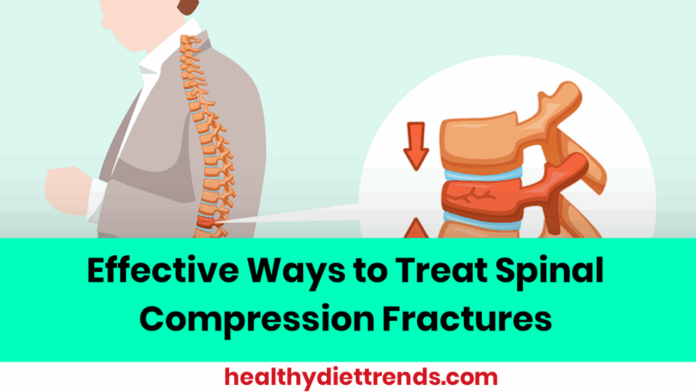Spinal compression fractures can be debilitating, causing significant pain and limiting movement. These fractures occur when the vertebrae in the spine collapse, often due to osteoporosis, trauma, or other conditions. Understanding the treatment options can help you manage the condition effectively and prevent further complications.
What is a Spinal Compression Fracture?
A spinal compression fracture is a break in the vertebrae that can lead to a loss of height in the affected bone. This type of fracture is most commonly seen in older adults, especially those with osteoporosis, but it can also be caused by injury or tumors.
Symptoms of Spinal Compression Fractures:
- Severe back pain that worsens with movement
- Loss of height or a stooped posture
- Limited mobility and difficulty in bending or twisting
- Numbness or tingling in the legs (in severe cases)
Treatment Options for Spinal Compression Fractures:
- Pain Management:
- Medications: Pain relievers, anti-inflammatory drugs, and muscle relaxants help reduce discomfort. For chronic pain, nerve pain medications might be prescribed.
- Ice and Heat Therapy: Applying heat or ice packs to the affected area can also provide relief from pain and stiffness.
- Bracing for Support:
A back brace can provide support and limit movement, which helps reduce pain and ensures the vertebrae heal properly. Wearing a brace as prescribed by a doctor is crucial for proper recovery. - Physical Therapy and Exercises:
Once the fracture begins to heal, a physical therapist may guide you through exercises designed to strengthen the muscles around your spine, improve flexibility, and prevent future fractures. - Minimally Invasive Surgical Treatments:
- Vertebroplasty and Kyphoplasty: These procedures involve injecting bone cement into the fractured vertebra to stabilize it and relieve pain. They are minimally invasive and have high success rates in reducing pain.
- Spinal Fusion Surgery: In more severe cases, a spinal fusion may be required to permanently stabilize the affected vertebrae.
When to Seek Medical Attention:

If you experience persistent or worsening pain, difficulty moving, or neurological symptoms like numbness or weakness, consult your doctor immediately for a proper diagnosis and treatment plan.
Prevention Tips for Spinal Health:
- Maintain a Healthy Diet: Calcium and vitamin D are crucial for bone health.
- Exercise Regularly: Activities like walking, strength training, and yoga can help maintain bone density and muscle strength.
- Avoid Smoking and Excessive Alcohol Consumption: Both can weaken bones and increase the risk of fractures.
Conclusion:
Spinal compression fractures can severely affect your quality of life, but with the right treatment approach, most people can recover fully. Early diagnosis, effective pain management, and appropriate rehabilitation are key to healing and preventing future fractures.
Alos Read : Experts Reaffirm Safety of Fluoride in U.S. Water Amid Ban Debate



